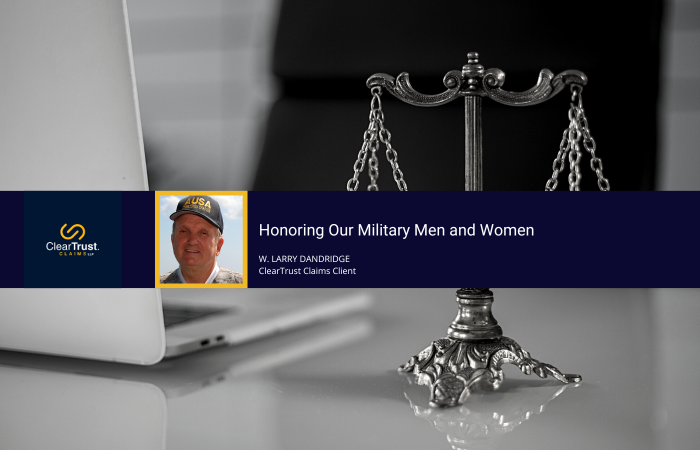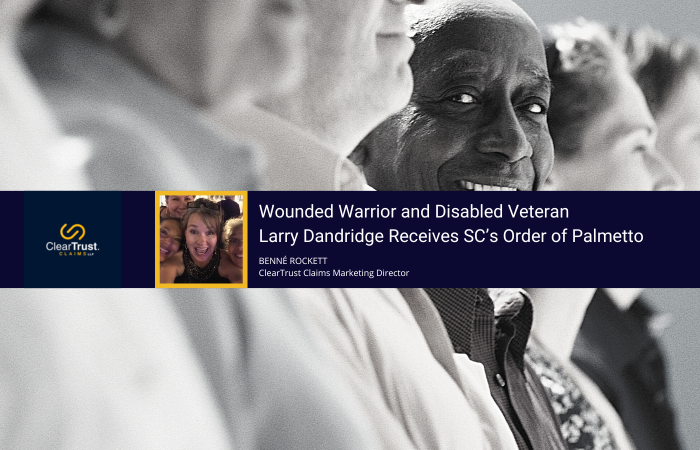As any veteran who served before the mid-1980s knows, asbestos used to be everywhere in the military. Some veterans have or will come down with asbestos-related disease as a result. Obtaining service-connected asbestos disability benefits from the VA is very difficult. But another compensation system, completely independent of the VA, exists to compensate asbestos disease sufferers: trusts set up by former asbestos producing and using companies. These trusts currently hold billions of dollars for the sole purpose of compensating asbestos victims. Because of the ubiquity of asbestos in the military, veterans with asbestos-related diseases will more easily qualify for trust compensation than the general population. The asbestos trusts are little known in the veterans community. This should not be. The trusts can provide compensation to sick veterans even when the VA will not. In this article, I will describe the trusts, why they matter to veterans, and what a potentially eligible veteran, or their family, can do to seek out that compensation.
We ask our men and women in uniform to put their lives on the line for us, and they do. In the military, one goes where one is told and one accomplishes the tasks that are assigned, and there are dangers that do not involve bullets and bombs. I am talking about toxic substances like agent orange, radiation exposure for atomic vets, and burn pits. While it took a lot of work by the veterans community, veterans with exposure to these toxins are now presumptively entitled to VA disability benefits.
Yet there is one environmental toxin to which every veteran who served before the mid-1980s was exposed – asbestos – for which no presumption of entitlement applies. Asbestos was everywhere in the military – any veteran from the 1980s and before will remember the asbestos-wrapped pipes in the mess hall, barracks, and many other buildings. The military required asbestos in components requiring heat protection or insulation – brake pads, gaskets, clutches, gloves, electric wiring and components, asbestos water-proofing grease, HVAC, boilers, cockpit cooling systems, asbestos siding, asbestos protective clothing; the list goes on. Every veteran will have been exposed to some degree to asbestos while in service.
In the 1970s and 1980s, as tens of thousands of asbestos-exposed workers, veterans and non-veterans alike, began exhibiting symptoms of disease, asbestos companies were overwhelmed with lawsuits on behalf of sick workers. Eventually, many of these companies took advantage of a provision of federal bankruptcy law to set up trusts funded with many billions of dollars to compensate asbestos victims. Currently, there are more than 50 trusts holding in aggregate more than $25 billion. The sole purpose of these trusts is to compensate victims of asbestos-related disease, including those who come down with such illnesses in the future.
The asbestos trusts are designed to move asbestos claims from the courts to the trusts. If an asbestos victim has a claim against XYZ Corporation, and XYZ has established a trust, then the victim can seek compensation only from the trust. Suing in court is not permitted. The tradeoff for being excluded from the court litigation lottery is that if a trust claimant can document their disease and their exposure to asbestos, the claimant will get paid. The courts are not involved. There is no lawsuit, depositions, discovery, or court hearings. If the claimant can check the right boxes, and provide the documentation, the claimant will be paid, and in a process that takes several months, not years.
Another benefit of the asbestos trusts is that they have no connection to the VA. Compensation from asbestos trusts has no impact on a veteran’s eligibility for VA benefits. Veterans with service-connected asbestos-related disability from the VA can be compensated by the trusts, with no impact on VA eligibility. In fact, veterans who have been denied VA asbestos-related disability may still qualify for trust compensation since the trusts have no service-connection requirement.
To establish eligibility, a trust claimant must have one of a number of asbestos-related diseases, ranging from cancers such as mesothelioma to severe asbestosis to non-symptomatic scarring of both lungs. In addition, the claimant must demonstrate exposure to asbestos. Virtually all asbestos trusts maintain lists of sites where their company’s asbestos was used (each list can contain up to tens of thousands of sites). A trust claimant needs only establish that they worked at a location (or locations) on the site list, nothing more. The 50+ current trusts have thousands and thousands of military sites on their lists – most military bases, many smaller or more specialized facilities, many ships and boats, and even some overseas facilities. Veterans can establish their exposure simply by showing: “I was stationed there.” Trust claimants must also demonstrate five years lifetime exposure to asbestos from any source, including civilian employment. Most veterans who suffer from asbestos-related diseases should be able to meet the exposure requirements.
There are currently over 50 asbestos trusts, which have similar, but not identical, requirements. Since trust claimants will be paid by each trust for which they qualify, without setoff for other payments, claimants almost always need to submit to multiple trusts. Claimants really need an attorney’s assistance to do this. One can find attorneys who do this sort of work simply by searching “asbestos trusts” on the internet, although potential claimants will find that many of these attorneys have no interest in representing clients with asbestos diseases that are not cancer. One thing to keep in mind: filing trust claims is for the most part a check-the-box process. Trust claims incur none of the costs of court litigation – depositions, hearings before a judge, expensive experts, travel. It is easy to find attorneys who charge a 33 or 40 percent contingency fee (the lawyer’s share of trust compensation) to submit trust claims, the same amount the attorneys charge for full court litigation. There is no good reason for this. Trust claimants should not pay more than 10 percent, or perhaps a bit more, for making trust claims that involve little of the work, and even less of the risk, than lawsuits in court.
This article was originally published in the August 2022 issue of the ROA Online.




